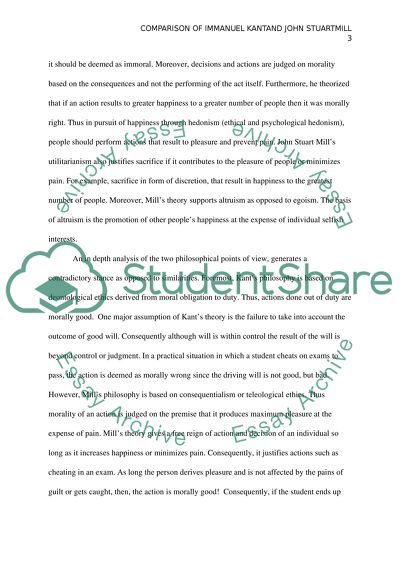Comparing both Immanuel Kant and John Stuart Mill's philosophical Essay. Retrieved from https://studentshare.org/philosophy/1600629-comparing-both-immanuel-kant-and-john-stuart-mills-philosophical-positions
Comparing Both Immanuel Kant and John Stuart Mill'S Philosophical Essay. https://studentshare.org/philosophy/1600629-comparing-both-immanuel-kant-and-john-stuart-mills-philosophical-positions.


